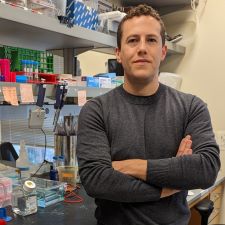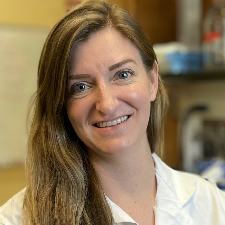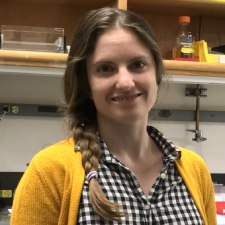Ben F. Brian, PhD

Abnormal interactions between our immune system and our gut microbes can lead to inflammation that drives colon and gastric cancer growth. Dr. Brian [HHMI Fellow] is investigating how the immune system recognizes and responds to these microbes, and how these interactions contribute to abnormal inflammation that can fuel cancer growth. Microbiota-immune interactions have been generally studied in the context of "clean" laboratory mice, but these models do not fully capture human immunology and the complex interplay between host cells and foreign microbes. To overcome this, Dr. Brian plans to study these interactions in "dirty" mice, colonized by a diverse community of microbes as well as pathogens. He will then use laboratory mice with more defined microbial communities to test how recognition of specific microbes by the immune system is regulated and how disruptions to this regulation contributes to inflammation. Dr. Brian received his PhD from the University of Minnesota, Twin Cities and his BS from the University of California, Santa Barbara.
Catherine A. Freije, PhD

Dr. Freije [Berger Foundation Fellow] is studying how the genetic diversity of hepatitis B virus (HBV) is shaped by its need to replicate and interact with specific host genes. Current antiviral therapeutics for HBV merely suppress infection and do not cure disease; as a result, patients with chronic HBV infection are at risk of developing liver cancer. Dr. Freije plans to uncover essential genomic regions that HBV needs to survive and persist, as well as those that counteract host genes that function to restrict these activities. This approach could provide insight into the progression of disease and has the potential to identify new antiviral therapeutics and ultimately reduce the incidence of HBV-associated liver cancer.
Lauren E. Cote, PhD

Dr. Cote is exploring embryonic development to better understand how cells cooperate and build complex tissues. Since cancer cells often erroneously redeploy developmental programs and behaviors, her research into how neighboring cells align will yield insights into how cancerous cells metastasize and invade other tissues. Dr. Cote is combining tissue-specific genetic manipulations and laser cell ablations with live imaging during Caenorhabditis elegans digestive tract development to reveal how intracellular organization in one cell type can influence the alignment, polarity, and function of cells in the neighboring tissues.
